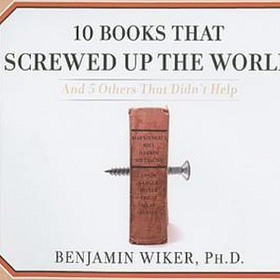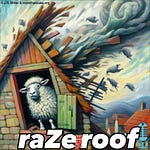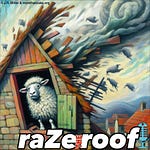Based on his study of Popes and Kings, The Prince by Machiavelli offers strategies for taking and keeping power. Machiavelli’s ideal of ruthless pragmatism has profoundly influenced political theory and leadership models in the West. Some of his advice includes the importance of appearing virtuous while being willing to act immorally and the effectiveness of fear over love. Joe and Leroy analyze Machiavelli’s book using the six worldview questions to show how his art of power has deformed our politics and church leadership.
REFERENCES
10 Books that Screwed Up the World: And 5 Others That Didn't Help by Benjamin Wiker
BACKGROUND BASICS
Niccolò Machiavelli (1469–1527) was an Italian Renaissance political philosopher, historian, diplomat, and writer. Best known for his treatise The Prince, Machiavelli is often considered the father of modern political science. Machiavelli's works, including "The Discourses on Livy," explore themes of political power, statecraft, and realpolitik. The Prince was written during the infancy of the Protestant Reformation. In this book Machiavelli offered advice to Roman Catholic princes on how best to take and maintain power. Addressed to Lorenzo de Medici, The Prince advocates pragmatic, often ruthless strategies for leadership. Key themes include the importance of appearing virtuous while being willing to act immorally when necessary, the effectiveness of fear over love, and the necessity of a strong, adaptable ruler. Machiavelli emphasizes realpolitik, advising rulers to focus on practical outcomes rather than moral considerations. The work remains influential for its candid analysis of power dynamics and statecraft.
EPISODES IN THIS SERIES
10 Books that Screwed Up the World
If you want to understand the culture, you need to understand philosophy. But if that task seems overwhelming, this podcast series is just for you.
VIDEO SHORTS
DISCUSSION POINTS
Below is a list of just a few of the big ideas discussed in this episode. Subscribers, feel free to weigh in with your own ideas and join me in the conversation.
Introduction to Machiavelli and The Prince
What are the main reasons for discussing Nicola Machiavelli's ideas in the context of a Christian podcast?
How did Machiavelli’s historical context influence his political theories?
Philosophical and Political Influence
How have Machiavelli’s ideas about political power influenced modern political thought?
In what ways do Machiavelli's ideas contrast with Christian values and moral absolutes?
Themes in The Prince
What are the key themes in Machiavelli's *The Prince*?
How does Machiavelli differentiate between republics and principalities?
Worldview Analysis
How can we apply the six worldview questions to Machiavelli's philosophy?
What is Machiavelli's stance on the nature of virtue and morality in political leadership?
Machiavelli's Influence and Legacy
How did Machiavelli's relationship with the Medici family affect his career and writings?
Why was Machiavelli's work largely unknown until after his death, and what impact did its later publication have?
Contradictions and Controversies
What are the main contradictions between Machiavelli’s recommendations in *The Prince* and Christian teachings on leadership?
How do Machiavelli's ideas about the use of cruelty and fear as tools for maintaining power challenge, or align with, contemporary ethical standards?
Application to Modern Contexts
How can Machiavelli's ideas be seen in modern political strategies and leadership styles?
In what ways can understanding Machiavelli help Christians navigate and critique contemporary political environments?
Machiavelli’s Personal Beliefs
Was Machiavelli an atheist, a Roman Catholic, or did he hold some other belief system? How do his personal beliefs reflect in his writings?
How did Machiavelli’s political advice differ from that of Eusebius?
How does the historical period of Machiavelli, particularly the cusp of the Reformation, contextualize his views on religion and politics?
Impact of The Prince
What was the significance of *The Prince* being dedicated to Lorenzo de' Medici, and what was Machiavelli hoping to achieve?
How does Machiavelli’s advice on maintaining power reflect his views on human nature?
What are some historical examples where leaders have applied Machiavellian principles, and what were the outcomes?
Episodes in this Series
10 Books that Screwed Up the World
If you want to understand the culture, you need to understand philosophy. But if that task seems overwhelming, this podcast series is just for you.



















Share this post